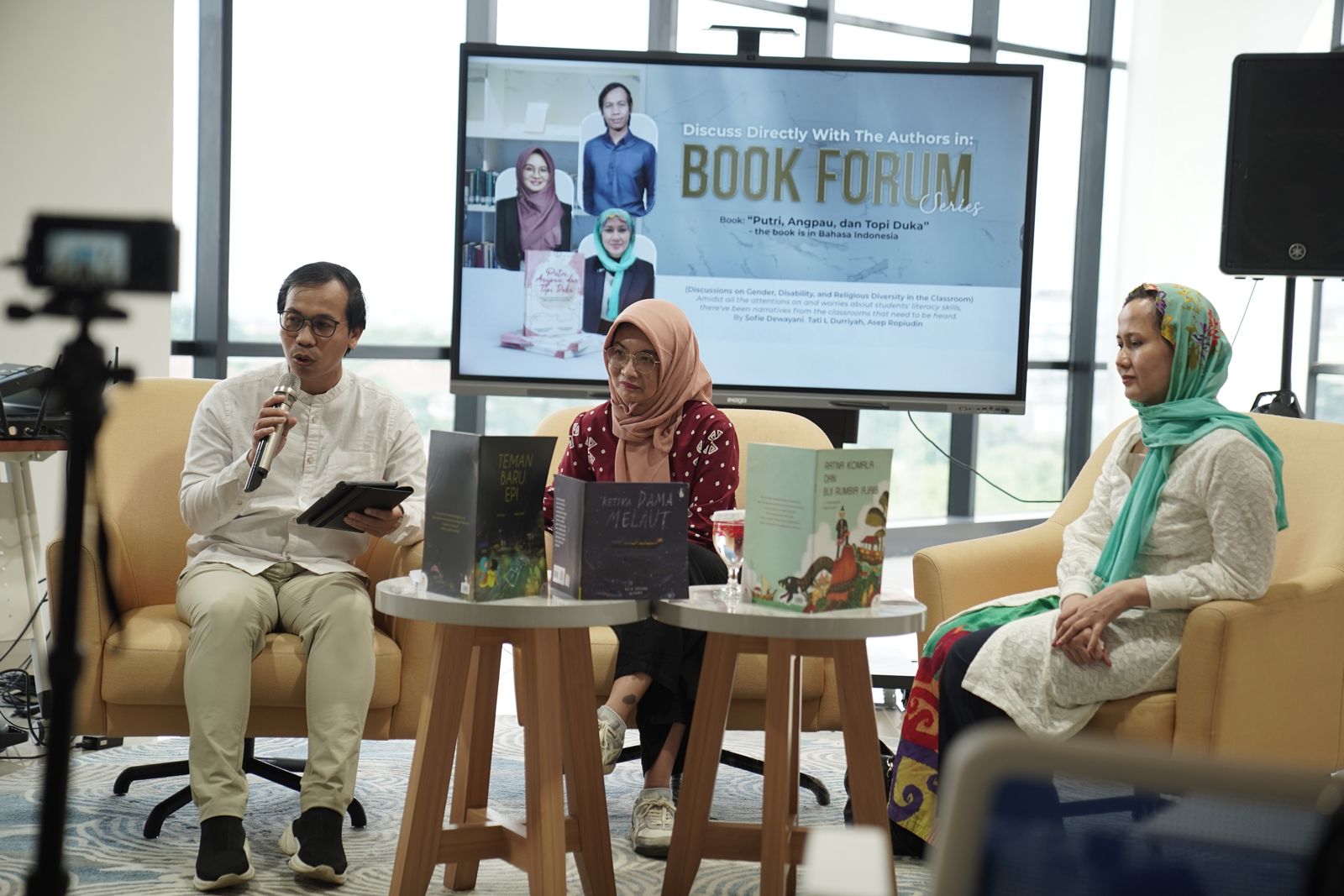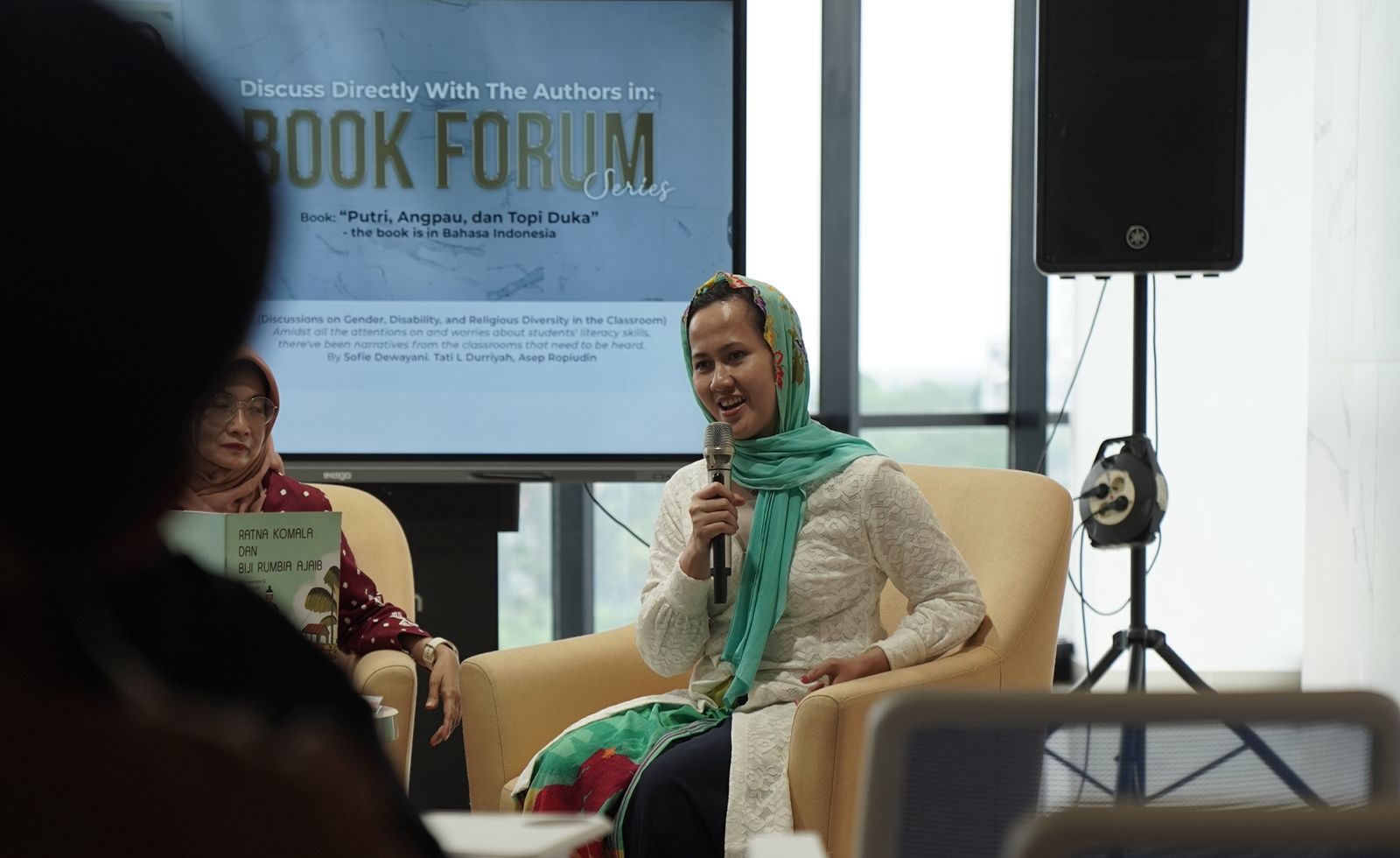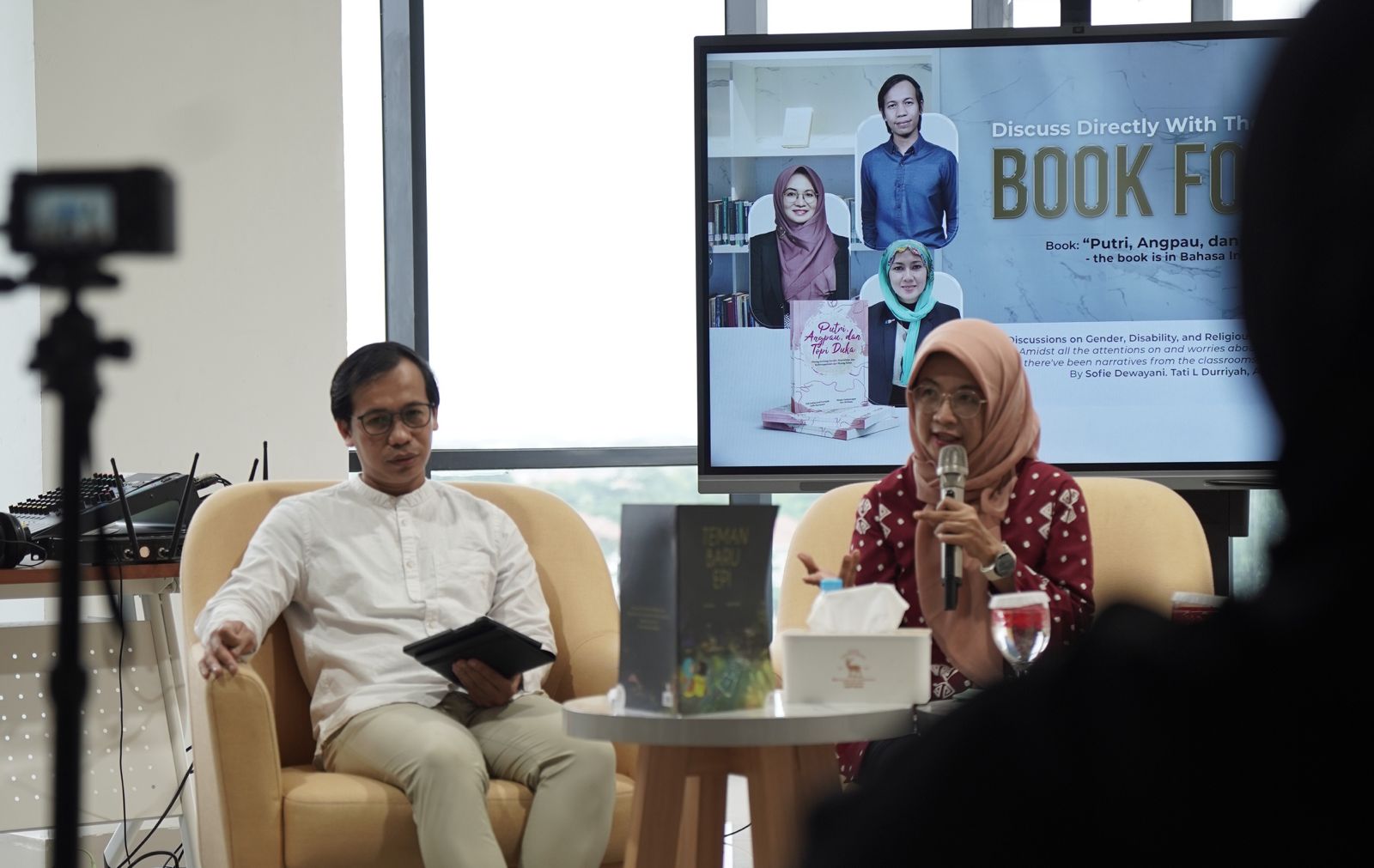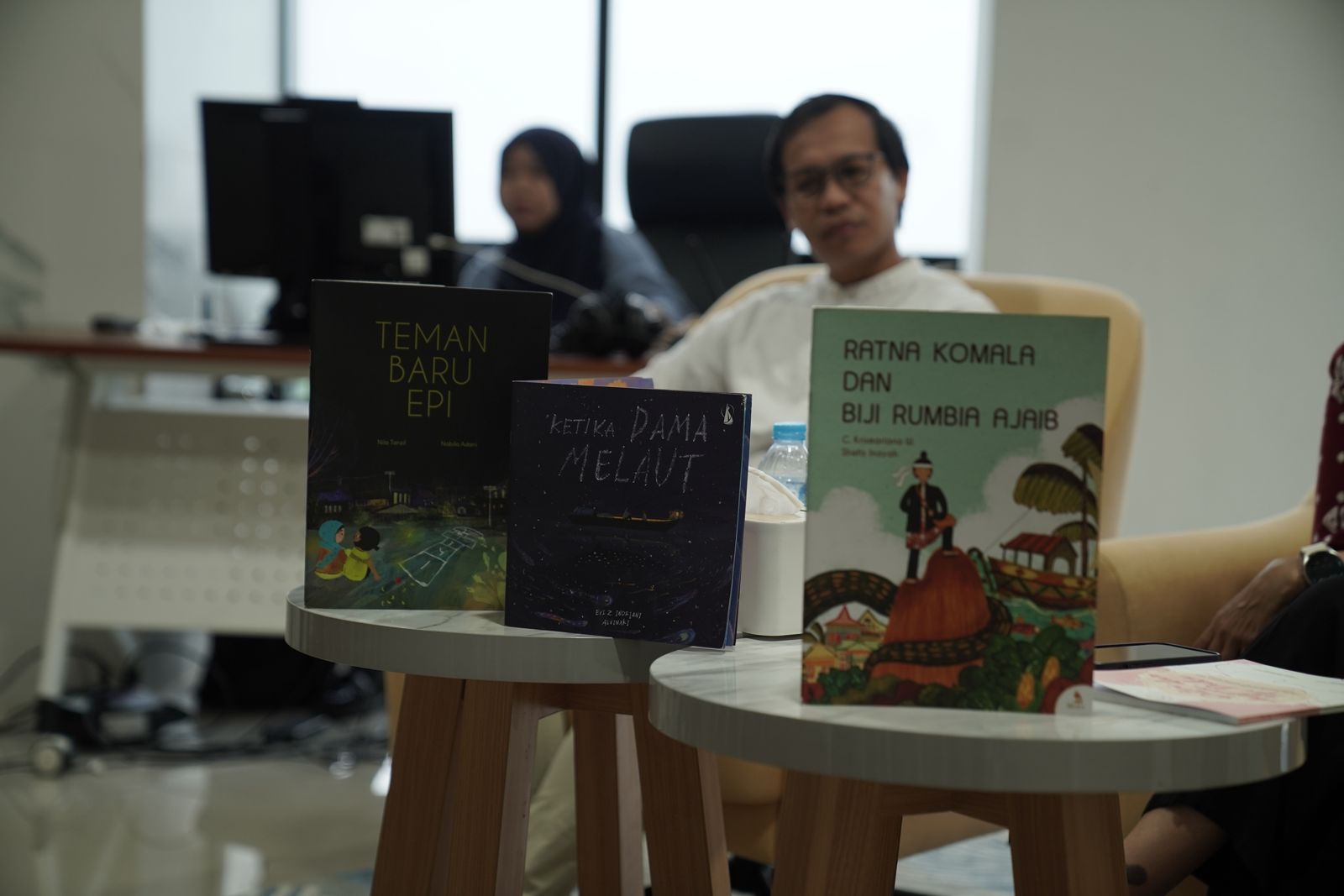More From News
UIII Builds a Bridge to Costa Rica
February 26, 2026
UIII Strengthens Its Academic Resources with Read Japan Project
February 25, 2026
May 15, 2025
Contributor: Supriyono | Editor: Dadi Darmadi | Photo: Alief Fathan

In an effort to amplify classroom voices and enrich the national conversation on students’ literacy and inclusivity, the Jusuf Kalla Library at UIII held a Book Forum featuring the authors of ‘Putri, Angpau dan Topi Duka’. The event offered a space for reflection and dialogue on how children’s literature can be a powerful medium to discuss gender, disability, and religious diversity in educational settings.
The book, written in Bahasa Indonesia by Dr. Sofie Dewayani, Dr. Tati L. Durriyah, and Asep Ropiudin, was the product of a two-year collaborative research project involving educators from multiple universities and foundations across Indonesia. Moderated by Asep Ropiudin himself, the discussion centered around how classrooms can become spaces to introduce social issues for children utilizing meaningful stories and literature.
“Seeing this book physically—it feels like a dream,” said Dr. Tati L. Durriyah, recalling the project’s beginnings during the COVID-19 pandemic in 2022. “It took years of hard work, delays, and collaborative efforts. We designed this book specifically for practitioners, using accessible language and authentic classroom experiences.”

The book follows the experiences of three master teachers from various regions of Indonesia as they navigate discussions on identity and inclusion through literature in their classrooms. These stories, the authors argue, are often overlooked in national discourses around students’ literacy, which tend to focus on rankings and generalized assumptions.
Dr. Sofie Dewayani emphasized the importance of listening to students’ stories, noting, “When we zoom in to the classroom level, there are powerful narratives created by children. If we truly listen to them, we’ll realize they are literate—they just need something to connect with.”

She shared one example from the book in which a teacher introduced the story of Ratna Komala, a tale that reverses traditional gender roles with a brave sister rescuing her brother. “This flips the usual portrayal of women as passive figures awaiting rescue,” Dr. Dewayani explained. “And it prompted a classroom conversation about women’s roles in society, even touching on issues like why women might not receive holiday bonuses.”
The forum also highlighted another story in the book about the friendship between an Indonesian girl and an Afghan refugee—used in class to foster dialogue about borders, identity, and shared humanity. “We believe a book comes to life only when a teacher facilitates critical discussion,” said Dr. Dewayani.
In a time when there is growing concern over students’ literacy rates and reading habits in Indonesia, the forum underscored the importance of going beyond numbers to spotlight lived experiences and classroom conversations. By sharing these teacher-led stories, the book encourages educators to approach literacy not just as a skill, but as a gateway to critical thinking, empathy, and inclusivity.

Universitas Islam Internasional Indonesia